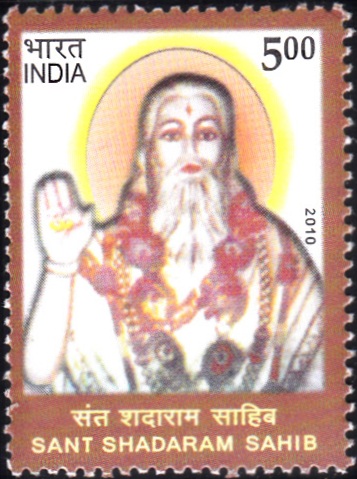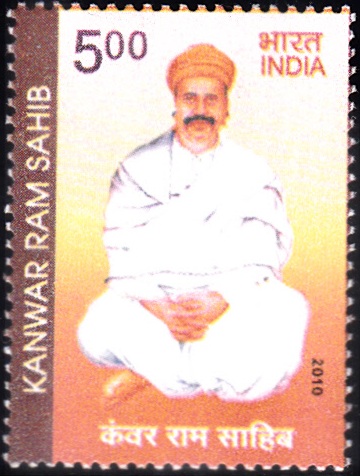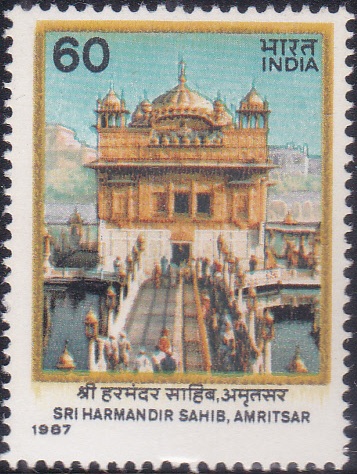
Sant Shadaram Sahib
A commemorative postage stamp on Shadani 1st Satguru Sant Sadaram Sahib, founder of Shadani Darbar :
Issued on Oct 25, 2010
Issued for : India Post is happy to issue a commemorative postage stamp on Sant Shadaram Sahib.
Credits :
Stamp/FDC/Cancellation : Nenu Gupta
Type : Stamp, Mint condition
Colour : Multi colour
Denomination : 500 Paise
Stamps Printed : 0.4 Million
Printing Process : Photogravure
Printer : India Security Press, Nashik
Name : Sant Shadaram Sahib
Born on Oct 25, 1708 at Lahore, India [now Pakistan]
Died on 1973
About :
- Sant Shadaram Sahib, was born on 25th October 1708 in Lahore now in Pakistan.
- According to the ancient history of Sindh, during the rule of Gulam Shah Kalhoro people were suffering. During this unrest period Sant Shadaram Sahib was born bringing hope, comfort, spiritual joy, peace and divine light to the hearts of the people.
- Even as a child he preached the people & advised people to turn away from a sinful life, do good deeds and to help the poor. At the age of 20, he undertook a long pilgrimage, visiting all important holy places in North India including the Pasupathinath Temple in Nepal. In 1768, he returned to Mathelo, a prominent city in Sindh. Here, he lit a holy fire and established the ‘dukh bhajan dhuni sahib‘ (Bhashmi) and a well was dug and it is believed that both have miraculous powers. The land of Sindh has been the abode of rishis, saints and fakirs who, through their divine powers, and meditation, have helped the poor and downtrodden, and shown them the path of salvation.
- Several shrines have been established to perpetuate the memory of saints and encourage the following of their respective sects. Among all these, the “Holy Shadani Darbar” stands out as a unique shrine which over the last three centuries has served humanity with the guidance and blessings of eight Shadani saints. Sant Shadaram Sahib passed away in 1973.
- His successors have revived the cult of devotion, in the tradition of the Bhakti movement. Presently ‘Shadani Darbars’ have been established in India in order to encourage spiritual growth leading to ultimate self-realization and enlightenment and to provide succor to the poor and downtrodden.
- Text : Based on materials provided by the proponent.
Subscribe
Login
0 Comments
Oldest


 Issued by
Issued by




